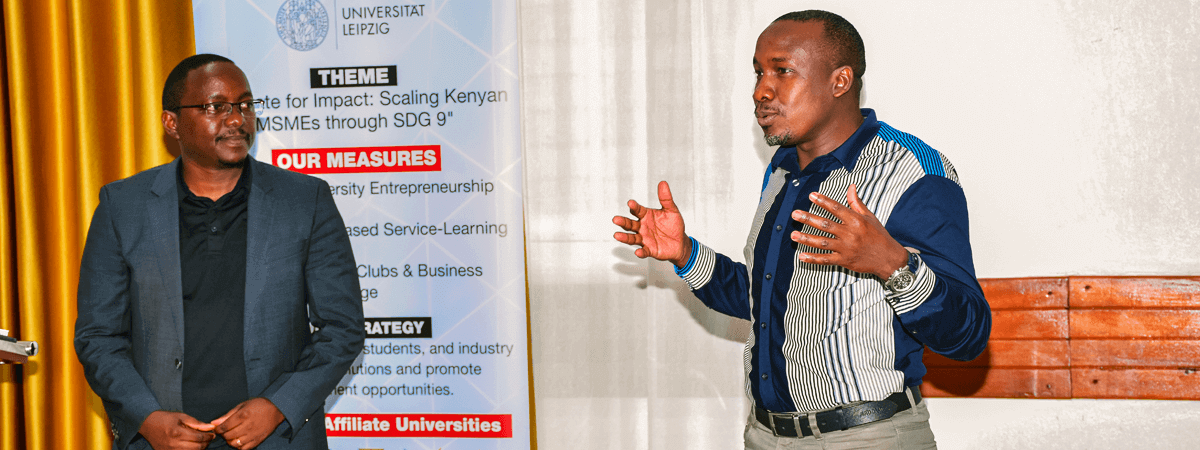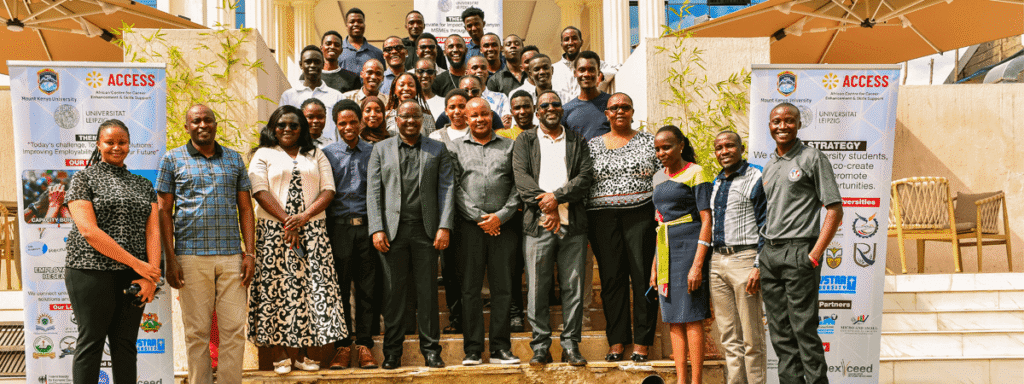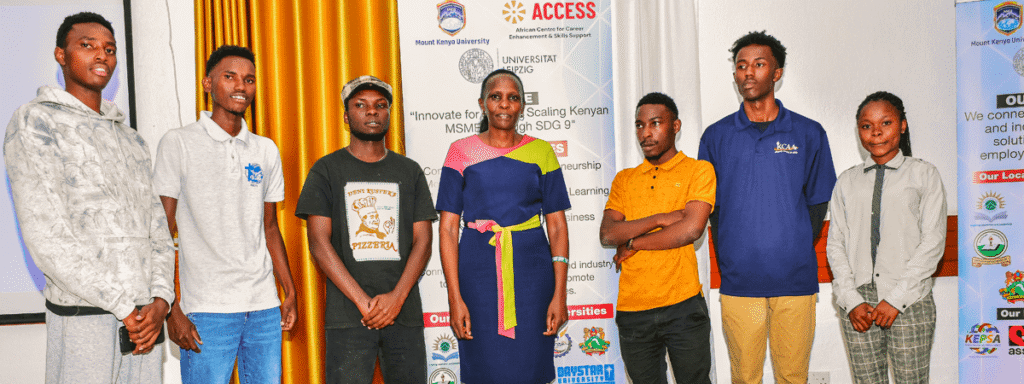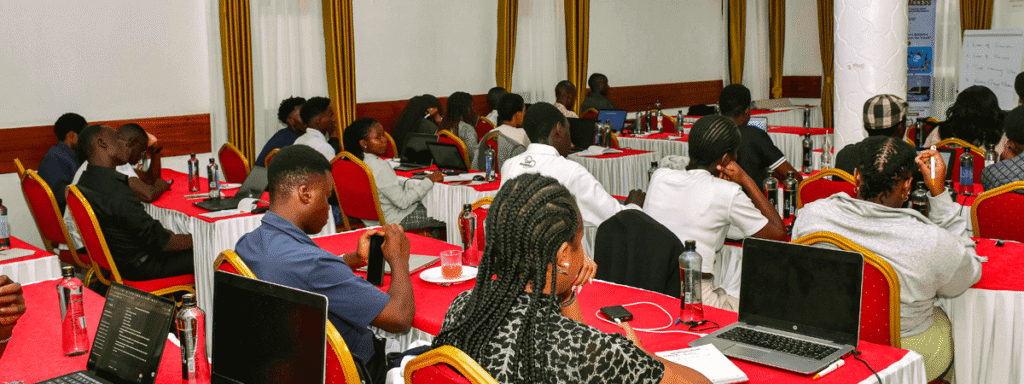
During ACCESS Bootcamp 2025 Embu, Kenya – October 20, 2025
The ACCESS Student Clubs Business Innovation Challenge 2025 officially opened today at The Marvel Hotel, Embu, bringing together top student innovators from 10 universities across Kenya. The week-long bootcamp is themed “Innovate for Impact: Scaling Kenyan MSMEs through SDG 9”, focusing on building resilient industry, infrastructure, and innovation. According to Dr. Henry Yatich the project coordinator, the initiative which marks the beginning of ACCESS Student Clubs Innovation, is geared towards promoting co-creation approaches with MSMEs in Kenya under the service-learning framework. Currently, he expressed optimism with the industry trainers invited throughout the week long event as also one of the strategy to reach out to the industry. Currently, the university in consuction with Leipzig university are pursuing a collaborative model with MSEA, Kenya and KEPSA to reach out to the MSMEs and co-create solutions through Action Research.
The day commenced with an inspiring keynote address and official opening by Mr. Davis Waithaka, Head of KEPSA (and CEO of Elimu Limited). Mr. Waithaka challenged the young innovators to shift their focus to high-level productivity and directly tackle systemic barriers faced by Micro, Small, and Medium Enterprises (MSMEs), particularly financial access and the innovation ecosystem gap.

“Innovators must continue working to make Kenya better,” stated Mr. Waithaka. “The goal is to provide certainty in a world of market uncertainty. The future of Kenyan MSMEs depends on the bold, scalable solutions that emerge from programs like this.”
A Showcase of Disruptive Ideas
The core of the day featured twelve compelling student presentations showcasing innovative, technology-driven solutions aligned with the SDG 9 goal. Highlights included:
- Tiba Connect (Strathmore University): A web application utilizing AI-Powered analytics to connect patients to nearby pharmacies, aiming to solve the problem of unpredictable stock patterns and wasted time searching for prescribed medicine.
- Echo Defender (Kabarak University): An AI-Powered Eco-friendly Ultrasonic Animal Deterrent designed to protect smallholder farmers and MSMEs from significant crop losses due to animal intrusions, offering a harm-free solution.
- Respiramate (Kabarak University): A smart health solution featuring a smart inhaler shell with proximity sensors and a wearable device that detects physiological and environmental factors, alerting asthma sufferers before an attack occurs.
- Flutter Pay (Machakos University): A peer-to-pool hybrid credit protocol offering uncollateralized stable coin credit lines to MSMEs overlooked by traditional financial institutions, using receivables to determine creditworthiness.
- Smart Dairy (Tharaka University): An AI-based solution that provides personalized feed mixes for smallholder dairy farmers, aiming to increase milk yield by up to 40% while cutting food costs by 25%.

The afternoon session pivoted to intensive capacity building, featuring deep dives into foundational concepts for successful innovation.
- Dr. James Nyamu from Tharak University emphasized that problem identification is key to developing a relevant concept, urging innovators to build broad networks.
- Professor Peter Kirira, the ACCES Board at MKY led a crucial session on problem validation, confirming that a problem is “real, worth solving, and important to the people who experience it.”
- Professor Kellen Kiambati from Karatina University guided the teams to refine their projects, posing core questions about beneficiaries, policy contributions, and the change the project will ultimately achieve.
The day concluded with students forming six inter-university groups to immediately begin implementing the feedback and refining their core ideas, setting the stage for solution design and prototyping in the coming days.

The ACCESS (African Centres of Excellence for Sustainable Solutions) Project Consortium is dedicated to fostering sustainable innovation and capacity building across African institutions. The Business Innovation Challenge aims to empower the next generation of entrepreneurs to create high-impact, scalable solutions for critical local challenges.











